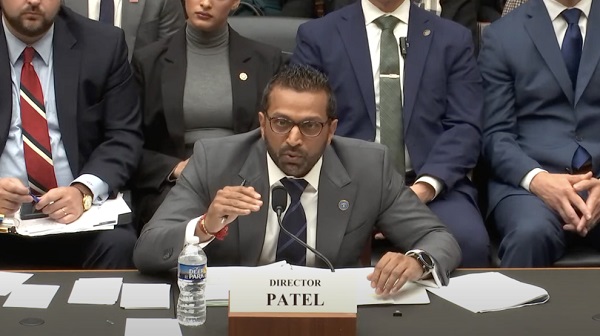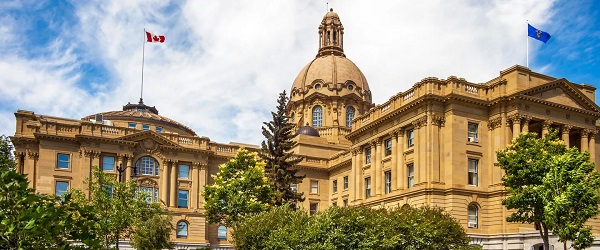Alberta
List of “non-essential businesses” – Alberta COVID-19 update

Update 14: COVID-19 pandemic in Alberta (March 27 at 8:30 p.m.)
From the Province of Alberta
Fifty-six additional cases of COVID-19 have been confirmed, bringing the total number of cases in the province to 542.
To protect Albertans and prevent the spread of COVID-19, the province has introduced new restrictions on mass gatherings and specific types of businesses.
Latest updates
- Cases have been identified in all zones across the province:
- 337 cases in the Calgary zone
- 120 cases in the Edmonton zone
- 30 cases in the North zone
- 43 cases in the Central zone
- 12 cases in the South zone
- Of these cases, 23 are currently hospitalized, including 10 admitted to intensive care units (ICU).
- In total, there have been 34 hospitalizations, with 11 admissions to an ICU.
- Two deaths have been reported.
- Up to 42 of the 542 cases may be due to community transmission.
- A COVID-19 outbreak was confirmed March 24 at the Nelson Home, a Calgary group home for persons with developmental disabilities. Two care workers and a resident have tested positive for COVID-19, and two other residents have been tested, with one negative result and no results available yet on a second. All individuals are self-isolating.
- To date, 20 cases have been identified in staff and residents of continuing care facilities, including 15 in McKenzie Towne Long Term Care, one case in Rosedale on the Park and four at Shepherd’s Care Kensington Village.
- There are six new confirmed recovered cases, bringing the total to 33.
- Aggregate data, showing cases by age range and zone, as well as by local geographical areas, is available online at alberta.ca/covid19statistics.
- All Albertans need to work together to help prevent the spread and overcome COVID-19.
- Public access to all courthouses in Alberta is restricted, and the Court of Queen’s Bench has updated the process of requesting emergency/urgent hearings.
Increased security for Alberta renters
A new package of direct supports and deferrals is being provided to provide security for residential renters amid the financial burden brought on by the COVID-19 crisis. Tenants will be protected from eviction for non-payment before May 1, 2020, rents will not increase during the state of public health emergency and late fees cannot be applied to rent payments for three months.
Vehicle restrictions in parks and recreation areas
Automobile access is temporarily suspended at all provincial park and recreation area access points. This matches the restrictions currently in place at national parks.
New restrictions on non-essential businesses
New restrictions are in place for close contact businesses, dine-in restaurants and non-essential retail services.
Non-essential retail services include:
- Gift and specialty stores
- Jewellery & accessories
- Non-essential health and beauty care
- Luggage
- Art and framing
- Mens’, ladies’ and children’s wear
- Shoes
- Bridal
- Computers & gaming
- Hobby & Toy
- Photo, music and books
- Sporting goods
List of essential workplaces
The list of essential workplaces that can continue to operate in Alberta can be found here.
New restrictions on mass gatherings
In addition, Albertans are prohibited from attending gatherings of more than 15 people, and they must continue to observe two metres of social distancing. Additional information can be found in this news release.
Recruiting physicians
The College of Physicians and Surgeons of Alberta has developed an online tool for Alberta physicians to self-report their ability to be redeployed to help with the COVID-19 pandemic. Once the College has identified doctors who can provide additional services, AHS will help with recruitment and ensure the doctors are deployed to the areas of greatest need where they will have the most impact.
Operating guide for continuing care
A new guide with mandated directions on how to respond to and prevent COVID-19 concerns and cases has been posted online for operators of continuing care facilities, seniors lodges, residential addiction treatment facilities and licensed facilities for person with disabilities.
Diagnostic imaging and lab tests
Effective immediately, Alberta Health Services (AHS) is postponing some diagnostic imaging procedures as part of the effort to prevent spread of COVID-19 and protect Albertans. Imaging deemed to be non-urgent by the ordering physician will be postponed.
AHS will work closely with patients whose exams are being rescheduled. Patients whose conditions change should connect with their physicians.
To free up more laboratory space for COVID-19 testing, physicians and community providers are being asked to immediately stop all non-essential and routine laboratory testing.
Flexibility for municipal governments
Government has added a new COVID-19 containment measure under the Municipal Government Act (MGA) called the COVID-19 Suppression Regulation. This gives local governments flexibility in doing business during the COVID-19 outbreak, including the option to hold meetings while still observing physical distancing. Municipal Affairs has extended a number of reporting timelines under the MGA, giving municipalities the time and ability to deliver on the needs of their residents and meet the requirements set out by the Act.
Mental health supports
AHS has boosted its service to help Albertans should they need to speak with someone about mental health concerns.
If Albertans call the Mental Health Help Line at 1-877-303-2642 or the Addiction Help Line at 1-866-332-2323 between 7 a.m. and 11 p.m., seven days a week, they will be connected directly to a dedicated team of AHS addiction and mental health staff.
This change will support 811 operators to focus on COVID-19 calls during the day and improve wait times for others needing telephone advice. Calls placed from 11 p.m. to 7 a.m. will continue to be routed through 811.
Pausing some health construction projects and non-essential service contracts
In order to protect patients, families and staff providing key services inside health-care facilities, AHS has informed some contractors and vendors that provide non-essential services at some health facilities that their projects will be temporarily paused.
These include non-essential delivery services and facility maintenance, such as flooring replacement, departmental renovations or lighting retrofit projects.
Alberta Infrastructure is also working with AHS to ensure that construction projects being done inside health facilities do not impact the operations of the facility.
As each project is reviewed and assessed, Infrastructure will provide notice to affected contractors if any projects are deferred.
Emergency isolation supports
Emergency isolation supports are available for Albertans who are self-isolating or who are the sole caregivers for someone in self-isolation, and have no other source of income. Applicants can view eligibility criteria and apply at alberta.ca. To carefully manage the flow of applications, we are periodically closing access to MADI and the Emergency Isolation Support. We will provide daily updates about system availability.
Access to justice
Effective March 30, 2020, public access to all courthouses in Alberta will be restricted until further notice. Members of the general public will only be permitted to enter a courthouse in certain circumstances. More information: https://www.albertacourts.ca/qb/resources/announcements/notice-to-the-public-and-legal-profession-restricted-access-to-courthouses.
The Court of Queen’s Bench is accepting requests for emergency/urgent hearings in all criminal, family, commercial and civil matters online or over the phone (for parties without access to the internet). More information: https://www.albertacourts.ca/qb/resources/announcements/requests-to-the-court-for-emergency-urgent-hearings.
Food supply
Despite higher retail demand, Alberta’s food supply remains secure. Government is in regular contact with other levels of government, producers, distributors, retailers and processors to ensure it stays that way. We are working with food banks and Indigenous communities to understand their needs and ensure everyone has access to the food supplies they need.
Medical evaluation for drivers’ licences
Alberta Transportation has extended the timeline to 90 days for most drivers requiring a medical evaluation to complete their medical form when applying for or renewing their licence. This will reduce the current strain on the health-care system. Medically high-risk drivers will still be required to present their medical evaluation at the time of their application or renewal.
Offers of help
The Alberta Emergency Management Agency Unsolicited Offers Program has been set up in response to growing offers of generosity from individuals and organizations to help with the challenges many Albertans are facing due to the COVID-19 pandemic. Those wanting to help can go toalberta.ca/COVID19offersprogram for more information.
Quick facts
- The most important measures that Albertans can take to prevent respiratory illnesses, including COVID-19, is to practise good hygiene.
- This includes cleaning your hands regularly for at least 20 seconds, avoiding touching your face, coughing or sneezing into your elbow or sleeve, disposing of tissues appropriately, and staying home and away from others if you are sick.
- Anyone who has health concerns or is experiencing symptoms of COVID-19 should complete an online COVID-19 self-assessment.
- For recommendations on protecting yourself and your community, visit alberta.ca/COVID19.
Alberta
Education negotiations update: Minister Horner

President of Treasury Board and Minister of Finance Nate Horner issued the following statement about the ongoing negotiations with TEBA and the ATA:
“I am pleased to share that TEBA and the ATA met in an Alberta Labour Relations Board (LRB) resolution conference today to discuss the unfair labour practice complaint launched against the ATA, by TEBA.
“As a result of the resolution conference, the LRB issued a consent order, which is an agreement by the parties to resolve the complaint.
“The consent order clarifies that there are only three outstanding bargaining issues. They are:
- The timing for implementation of the unified grid;
- The ATA’s proposal for an annual 1.5% long service allowance for teachers at the maximum step of the grid; and,
- Coverage of the COVID-19 vaccination.
“This consent order makes clear that none of the outstanding items under negotiation are about classroom complexity, class size or support for students.
“Alberta’s government has already addressed these concerns though our current offer which would add 3000 more teachers to classrooms. In addition, Budget 2025 invested$1.6 billion to support diverse learning needs and complexity in classrooms. This includes $53 million for classroom complexity grants.
“I trust that this order will assist Alberta’s families and teachers in understanding the true nature of the ongoing negotiations.”
Alberta
Sylvan Lake high school football coach fired for criticizing gender ideology sends legal letter to school board

From LifeSiteNews
The letter on behalf of Alberta high school volunteer football coach Taylor ‘Teej’ Johannesson mentions ‘workplace harassment’ while demanding his job back.
A Sylvan Lake high school football coach who was fired for sharing his views opposing transgender ideology on social media in a video discussing his Christian faith sent a legal demand to his former school board demanding he get his job back.
H.J. Cody High School volunteer coach Taylor “Teej” Johannesson, as reported by LifeSiteNews, earlier this month was fired by his school’s principal because he spoke out against gender-confused youth who “take their hatred of Christians” to another level by committing violent acts against them.
School principal Alex Lambert fired Teej, as he is known, as a result of a TikTok video in which he speaks out against radical gender ideology and the dangers it brings.
In a recent update involving his case, local media with knowledge of Johannesson’s issues with the principal at H.J. Cody High School in Sylvan Lake, Alberta, confirmed a legal demand letter was sent to the school.
The letter reads, “From his perspective, this opposition is consistent with the Alberta government’s position and legislation prohibiting prescribing prescription hormones to minors and providing care to them that involves transition surgeries.”
In the letter, the school board’s “workplace harassment” procedure is mentioned, stating, “Any act of workplace harassment or workplace violence shall be considered unacceptable conduct whether that conduct occurs at work, on Division grounds, or at division-sponsored activities.”
The legal demand letter, which was sent to school officials last week, reads, “Given that Mr. Johannesson’s expression in the TikTok Video was not connected to his volunteer work, the principal and the division have no authority to regulate his speech and punish him by the Termination decision, which is ultra vires (“beyond the powers.)”
Johannesson has said, in speaking with local media, that his being back at work at the school as a volunteer coach has meaning: “It’s about trying to create some change within the school system.”
He noted how, for “too long,” a certain “political view, one ideology, has taken hold in the school system.”
“I’m hoping that this demand letter, and all the attention that they’ve gotten over this, causes them to make some change,” he stated.
Johannesson has contacted Alberta’s Chief of Staff for the Minister of Education about his firing and was told that there is a board meeting taking place over the demand letter.
According to Teej, Lambert used his TikTok video as an excuse to get rid of someone in the school with conservative political views and who is against her goal to place “safe space stickers” all over the school.
Teej has been in trouble before with the school administration. About three years ago, he was called in to see school officials for posting on Twitter a biological fact that “Boys have a penis. Girls have a vagina.”
Alberta’s Conservative government under Premier Danielle Smith has in place a new policy protecting female athletes from gender-confused men that has taken effect across the province.
As LifeSiteNews previously reported, the Government of Alberta is currently fighting a court order that is blocking the province’s newly passed ban on transgender surgeries and drugs for children.
Alberta also plans to ban books with sexually explicit as well as pornographic material, many of which contain LGBT and even pedophilic content, from all school libraries.
-

 International2 days ago
International2 days agoFrance records more deaths than births for the first time in 80 years
-

 National2 days ago
National2 days agoChrystia Freeland resigns from Mark Carney’s cabinet, asked to become Ukraine envoy
-

 Energy1 day ago
Energy1 day agoA Breathtaking About-Face From The IEA On Oil Investments
-

 Business2 days ago
Business2 days agoOttawa’s so-called ‘Clean Fuel Standards’ cause more harm than good
-

 Business2 days ago
Business2 days agoThe Truth Is Buried Under Sechelt’s Unproven Graves
-

 Alberta2 days ago
Alberta2 days agoParents group blasts Alberta government for weakening sexually explicit school book ban
-

 International1 day ago
International1 day agoFBI Director Patel challenged on handling of the Epstein files during oversight hearing
-

 Health1 day ago
Health1 day agoCanadians diagnosed with cancer in ER struggle to receive treatment as Liberals keep pushing MAiD





